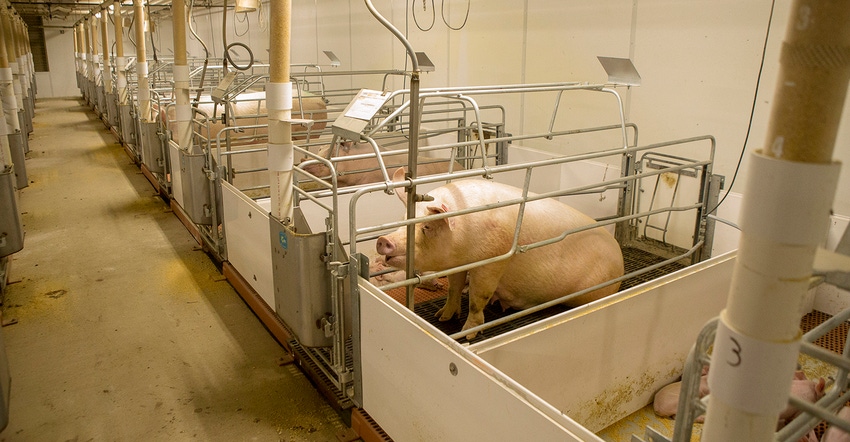ISU study to examine factors affecting reproductive success
Keating's previous research documented the effects of obesity, heat stress and toxicants on ovarian function in swine.
September 14, 2023

The impacts of obesity and heat stress on reproductive health will be the focus of a study at Iowa State University funded by the National Institute of Environmental Health Sciences.
The research project will determine whether heat stress causes additive impacts on ovarian toxicity in lean and obese mice. It will investigate impacts from the compound known as DMBA a member of a chemical class found in smoke from wildfires and other types of burning organic matter, including cigarette and second-hand smoke.
The award provides $401,550 over the next year for the project, which will be led by Aileen Keating, professor of animal science and director of the Interdepartmental Toxicology Program at Iowa State. The funding will also support training for two early career scientists to assist with the research.
“The rationale is that many metabolic changes are similar between obese and heat stressed animals,” Keating said. “We have already learned that obesity sensitizes mammalian ovaries to damage, and we hypothesize that this vulnerability will be compounded in heat-stressed obese mice.”
Keating has a strong record of research documenting the effects of obesity, heat stress and toxicants on ovarian function in swine.
“We have determined that female pigs experiencing heat stress suffer seasonal infertility and have altered insulin levels, similar to diabetes in humans,” she said. “The pigs also tend to develop other health problems related to heat stress, including leaky gut.”
Keating’s previous research has also found obesity leads to a cascading set of health risks for mammals, including altering the ability to resist stress on the ovaries and impairing genetic structure in ways that reduce the ability to repair DNA damage from toxic exposures.
“Obesity and environmental stresses represent a variety of challenges for reproduction,” Keating said. “It’s important to understand better how these combine to multiply health risks, as they often do in the real world.”
The new project will contribute to National Institute of Health initiatives on climate-related health effects and health equity.
Keating hopes the study can provide insights to improve reproductive success for humans and production animals.
“This work is important nationally — and globally,” Keating said. “It is especially relevant to firefighters and military personnel or others living in regions with high temperatures. It will also be of special interest to farmers who raise livestock in hot environments.”
You May Also Like



